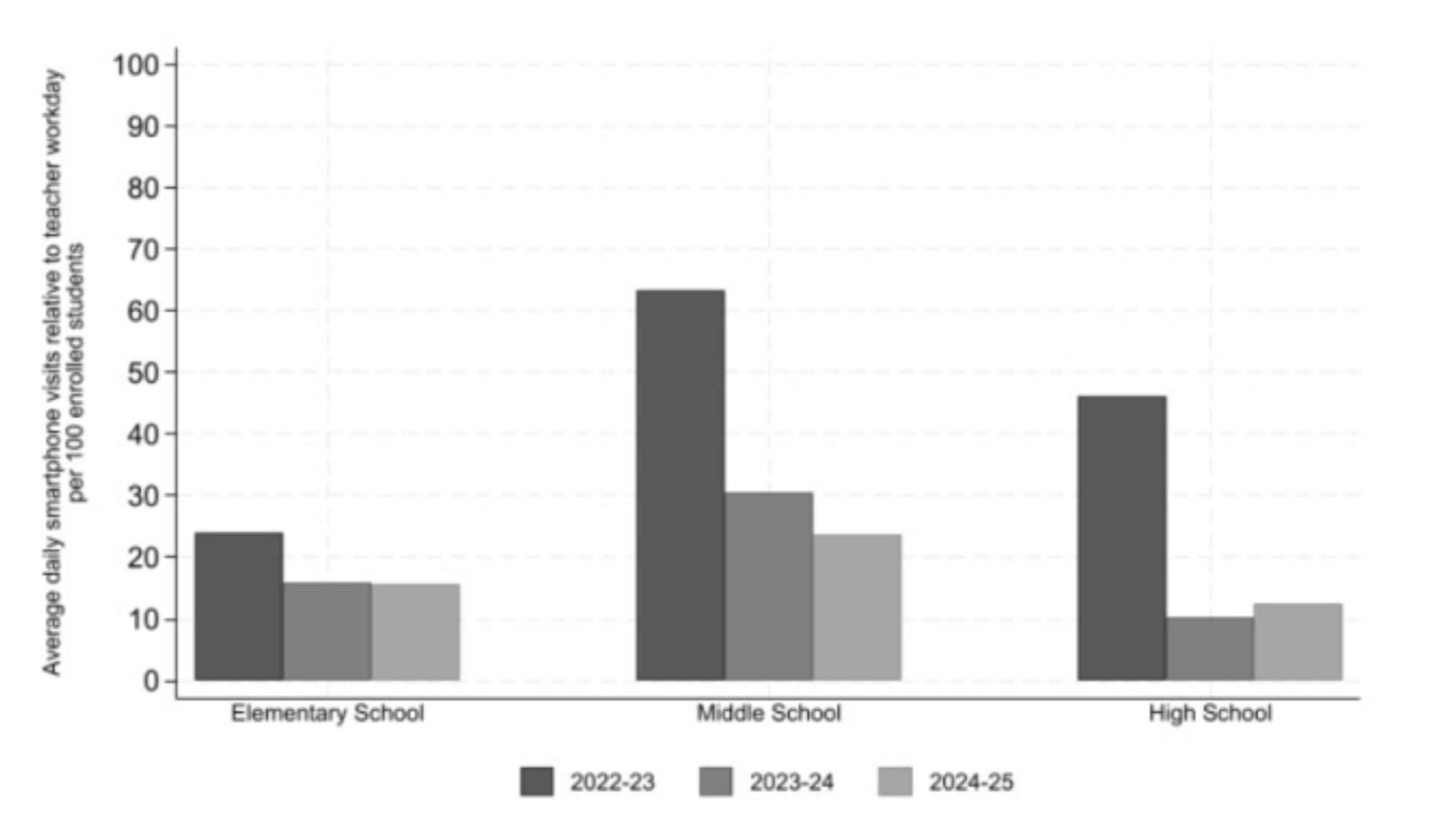The plan likewise came with an uncomfortable adverse effects. The mobile phone prohibits caused a considerable increase in pupil suspensions in the first year, particularly among Black trainees. However corrective actions decreased during the 2nd year.
“Mobile phone restrictions are not a silver bullet,” stated David Figlio, an economist at the College of Rochester and one of the study’s co-authors. “However they appear to be assisting children. They’re attending school much more, and they’re carrying out a bit better on examinations.”
Figlio claimed he was “stressed” about the short-term 16 percent increase in suspensions for Black trainees. What’s vague from this information analysis is whether Black pupils were more probable to go against the new mobile phone regulations, or whether instructors were most likely to single out Black students for penalty. It’s likewise uncertain from these management habits documents if students were initial given cautions or lighter penalties prior to they were suspended.
The data recommend that students adjusted to the new guidelines. A year later, student suspensions, including those of Black trainees, dropped back to what they had actually been prior to the cellphone restriction.
“What we observe is a rough begin,” Figlio added. “There was a great deal of discipline.”
The study, “The Influence of Cellphone Bans in Schools on Pupil Outcomes: Evidence from Florida,” is a draft working paper and has actually not been peer-reviewed. It was slated to be distributed by the National Bureau of Economic Research on Oct. 20 and the authors shared a draft with me beforehand. Figlio and his co-author Umut Özek at RAND think it is the very first research to show a causal link between cellular phone bans and discovering instead of simply a correlation.
The academic gains from the cellular phone ban were small, less than a percentile point, usually. That’s the matching of relocating from the 50 th percentile on mathematics and reading tests (in the center) to the 51 st percentile (still near the middle), and this small gain did not arise up until the 2nd year for many pupils. The scholastic benefits were strongest for middle schoolers, white trainees, Hispanic trainees and male trainees. The academic gains for Black pupils and female trainees were not statistically considerable.
I was amazed to find out that there is data on trainee cellular phone usage in institution. The authors of this research utilized info from Advan Study Corp., which accumulates and assesses information from cellphones around the world for business purposes, such as identifying the amount of people go to a particular retail store. The scientists had the ability to get this data for colleges in one Florida school district and approximate the number of students got on their mobile phones before and after the ban went into result between the hours of 9 a.m. and 1 p.m.
The data showed that more than 60 percent of middle schoolers, typically, were on their phones a minimum of when during the institution day before the 2023 restriction in this particular Florida district, which was not called however described as among the 10 largest districts in the country. (5 of the country’s 10 largest school districts remain in Florida.) After the ban, that fell in half to 30 percent of center schoolers in the first year and down to 25 percent in the 2nd year.
Elementary school trainees were less most likely to be on cellular phones to begin with and their in-school usage fell from about 25 percent of pupils prior to the ban to 15 percent after the restriction. Greater than 45 percent of high schoolers were on their phones before the ban and that was up to regarding 10 percent afterwards.
Ordinary daily smart device brows through in colleges, by year and grade degree

Florida did not enact a total cellphone restriction in 2023, yet enforced extreme limitations. Those constraints were tightened up in 2025 and that extra tightening was not studied in this paper.
Anti-cellphone policies have actually ended up being increasingly popular because the pandemic, greatly based upon our collective grown-up gut suspicions that youngsters are not learning well when they are eaten by TikTok and SnapChat.
This is perhaps a rare situation in public policy, Figlio stated, where the “information back up the hunches.”
Call staff writer Jill Barshay at 212 – 678 – 3595, jillbarshay. 35 on Signal, or [email protected]
This tale regarding cellular phone outlaws was created by The Hechinger Record , a nonprofit, independent wire service concentrated on inequality and development in education and learning. Register for Evidence Things and various other Hechinger e-newsletters